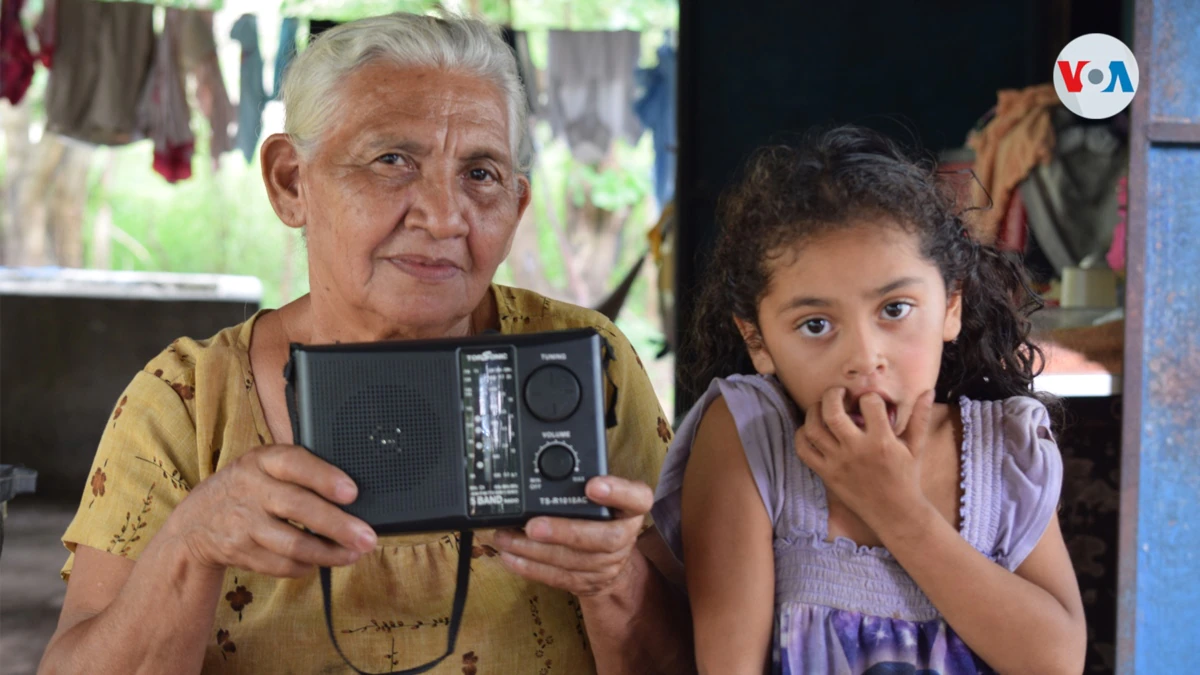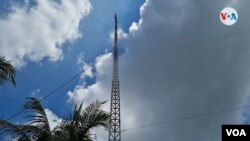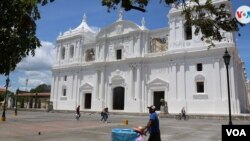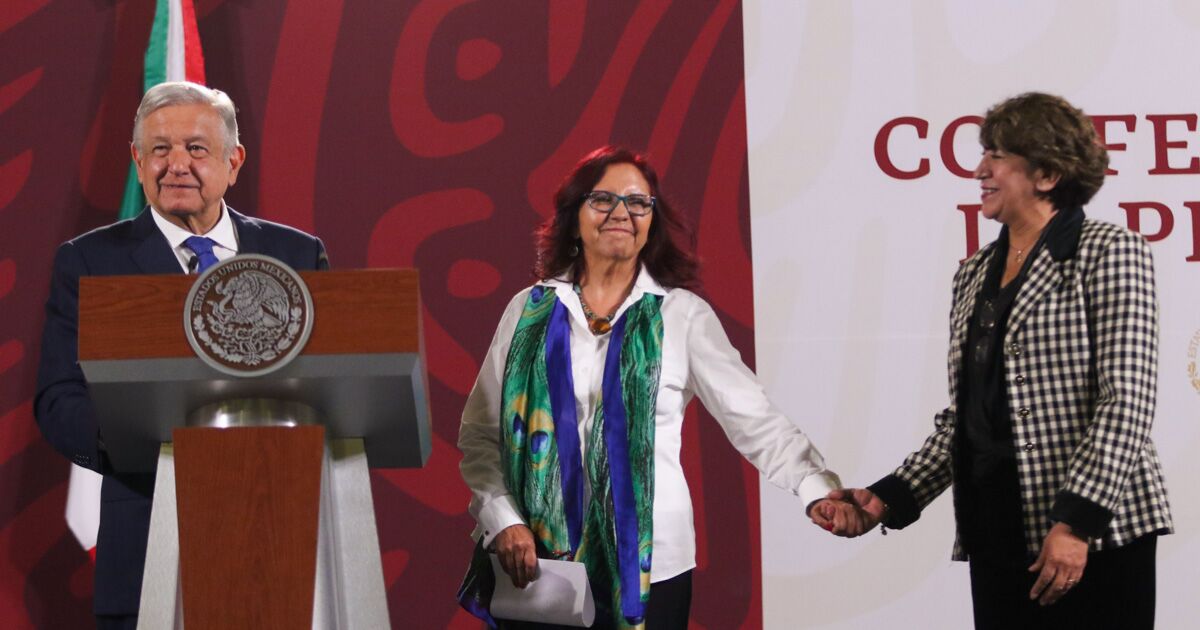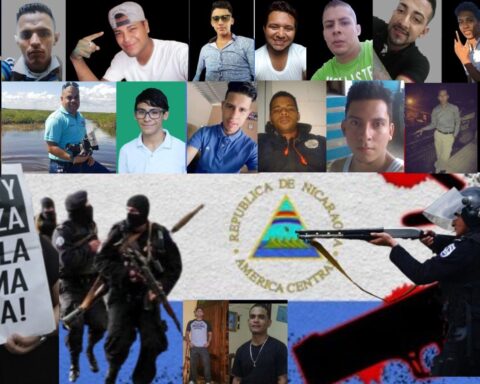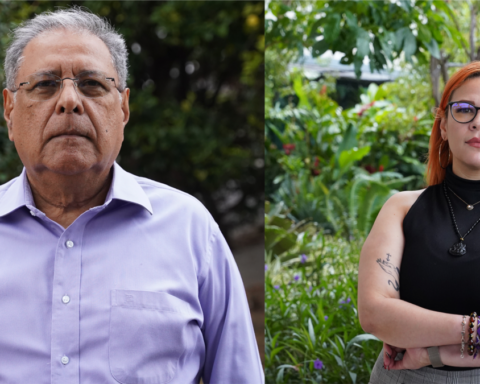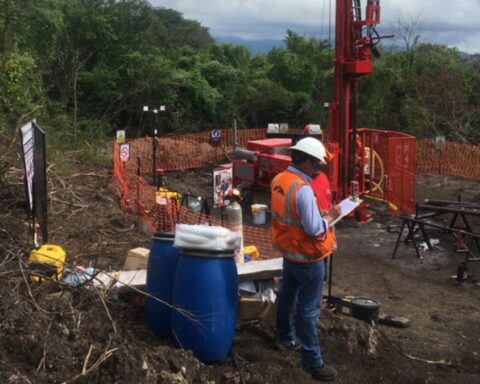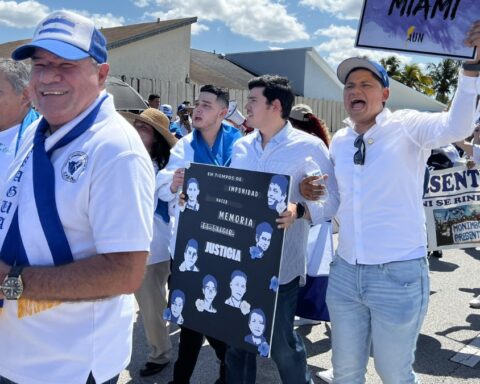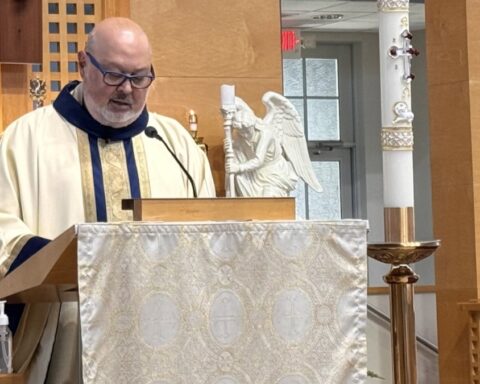Isabel Hernández finds out about the news that occurs in the department of León —north of Managua— when she travels to the city to buy food for the fortnight.
In the rural community where he lives, local people listen to the news on the radio with batteries, since they still do not have access to electricity, but the options for getting information with variety have been completely reduced.
“Sometimes until we go to the city we realize how the situation is. Now we don’t know anything because we haven’t been able to go to the city… we don’t realize what’s happening,” the woman tells the voice of americawhile hello water from a small artisanal mill that exists in the town.
Hernández, like the rest of the inhabitants of the area, are unaware, for example, of what happened to Radio Darío, one of the oldest stations left standing in Nicaragua and whose frequency covered the West of the country, made up of the departments of Chinandega and León. .
In the place where the sources spoke, the inhabitants are few, but they all have something in common: they report the news with radios. A little more than 100 people live in this small town belonging to León, however the city to which this community belongs is large.
In fact according to last official census of the Development Information Institute (Inide), León is the fourth department with more inhabitants in Nicaragua, with a little more than 300 thousand inhabitants distributed in ten municipalities.
Radio Darío, one of the oldest stations in the country, penetrated these municipalities, but the locals in the area say that for days it stopped playing on their radios, unaware that it was canceled by the government of Daniel Ortega, like 16 other media. more communication in the first fifteen days of August.
-Did you find out that they canceled Radio Darío?-
“Ah, is that why you can’t hear it?” he replied to the VOA a 69-year-old woman who was looking for said frequency in a deteriorated radio that she has in her humble home. “There is only a loud noise, nothing more.”
Instead of Radio Darío, the lady has replaced the station with an official one whose signal she says arrives “clearly”.
“When there is an earthquake I put on Radio Ya (a station related to Daniel Ortega) and it is giving the last minute alarm. Through the radio we find out what is happening here, ”said the lady who has opted for other official frequencies.
León, the “capital of the Sandinista revolution”
Radio stations critical of Ortega have been liquidated in Nicaragua one by one, and Radio Darío was no exception. Its headquarters were in the center of León, a bastion of Sandinismo that catalogs the city as “the capital of the revolution, which is why they consider that the station” was an enemy.
In 2018 Radio Darío was the target of a “terrorist attack” as its director Anibal Toruño called it at the time after being set on fire. The staff was inside and they managed to leave the place terrified, so their location was changed to another point.
Telcor, the telecommunications regulator, led by Nahíma Díaz, sanctioned by the United States, alleged that the station critical of Ortega had violated several clauses, such as the change of location where its headquarters were located.
“Your transmission studios at the address… do not correspond to the one authorized in the license,” says the Telcor resolution.
Anibal Toruño, director of Radio Darío, points out that the decision was guided “by Rosario Murillo (vice president of Nicaragua) and by Daniel Ortega because they knew that the headquarters was burned.”
In the center of the city, taxi drivers resent independent news since the stations that the government does not control broadcast musical content and where information is broadcast it is aligned with Ortega.
“Most of the time I always listened to the news from (Radio Darío), but it’s off the air… now I’d have to see which station to listen to,” said a taxi driver who preferred not to be quoted for fear of reprisals.
“I will need it because I was informed there,” said the man.
According to Radio Darío’s press officer, Francisco Torrez, the only critical radio station that competed with the media outlet he coordinates is My Voice Radio, this because of the reach it has in the localities, but he comments that the station stayed with Christian-style programming, although he says that they have a newscast, “where they omitted all the topics that have to do with the political situation in Nicaragua.”
Blackout throughout Nicaragua
In the rest of Nicaragua, the few independent media outlets that survive and are governed by Telcor have chosen to take a similar measure to that of the local Radio Mi Voz.
For example channel 10, Owned by the Guatemalan businessman Ángel González, it is the most watched television medium in Nicaragua and for months it decided to veto its political programs.
Wilih Narváez, a former Channel 10 reporter, told the VOA that this company “changed, like all the media (of communication) that have not yet been confiscated by the regime its editorial line” and that means “not making visible that in Nicaragua there are political prisoners, violation of human rights, sanctions and even persecution against the Catholic Church.
“Channel 10 has the largest audience in the country, at the time even Daniel Ortega himself recognized it. Many of the political prisoners that are currently there were arrested when they were leaving to give interviews on that channel,” says Narváez.
Instead of political issues, Channel 10 reports on social issues, traffic accidents, and politics. They only keep the appearances of Daniel Ortega before the nation, limited to reports from the Police, the Supreme Electoral Council, and other institutions.
Another media outlet that made a similar decision was Canal 12. In fact, its press officer announced on social media the end of his employment contract alleging “disagreements with his editorial policy adjustment”, after an interview with the director of the Central American Bank for Economic Integration (CABEI), Dante Mossi, was censored.
The VOA verified the suppression of political issues on both television stations through monitoring for several days. For example, the IX Summit of the Americas held in Los Angeles, California in June, did not exist on independent channels.
According to the journalist Wilih Narvaezeverything that happens “is a matter of survival” because “nobody wants to go into exile or lose their job and in the worst case scenario have the same future as the directors of La Prensa, who are now political prisoners.”
“These are very tough decisions, and beyond questioning the media, the audience is clear why this change is due. The only culprit for this happening is the regime of Daniel Ortega and Rosario Murillo using their repressive arms: Telcor canceling operating licenses, the Police confiscating and the Prosecutor’s Office fabricating crimes,” concluded Narváez.
The massive closure of local media in Nicaragua has been condemned by the Inter-American Press Association (IAPA) who recently denounced that the government of President Ortega created “a new information desert in the interior of the country.”
“With a single blow, the Nicaraguan government created a new information desert in the interior of the country, where the closed stations provided a valuable community service to thousands of people. It is obvious that they intend to do away with all vestiges of the independent press,” he said. the president of the IAPA, Jorge Canahuati.
Connect with the Voice of America! Subscribe to our channel Youtube and turn on notifications, or follow us on social media: Facebook, Twitter and Instagram.

